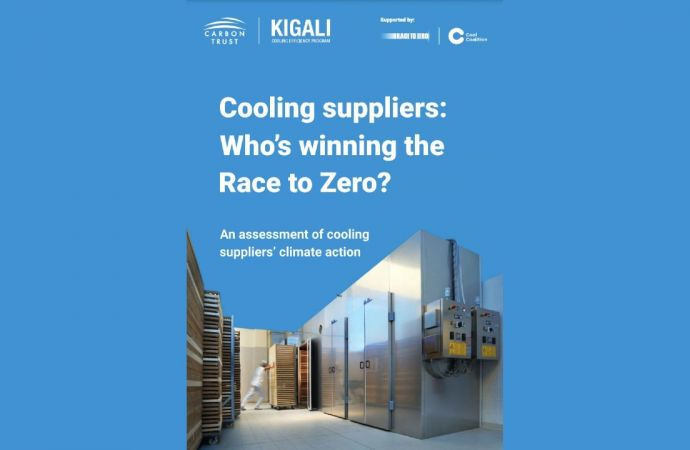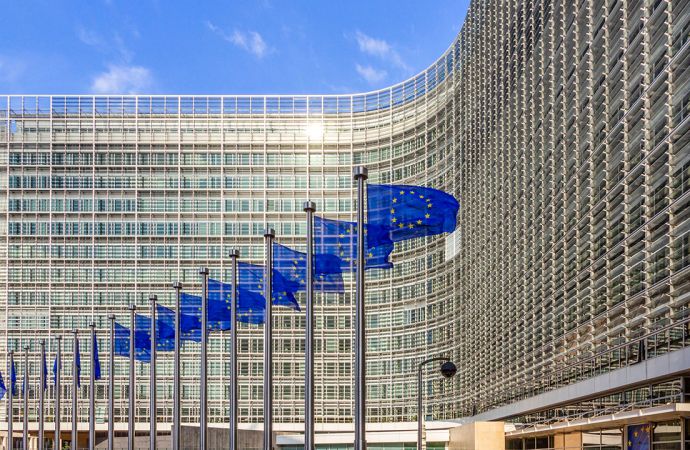The world’s most comprehensive study on climate change to date, released by the Intergovernmental Panel on Climate Change (IPCC) at the end of March 2014, stresses the urgency of fast action to mitigate climate change. The report details climate change impacts, future risks and opportunities. It also projects a 30-fold increase in energy demand for residential air-conditioning by 2100.

The new report, “Climate Change 2014: Impacts, Adaptation and Vulnerability” from the Intergovernmental Panel on Climate Change (IPCC) is the second in a four-part assessment of climate change. It relies on about 12,000 papers and is written by over 300 scientists, who voted on the final version on 30 March 2014 in Japan.
In recent decades, changes in climate have caused impacts on natural and human systems on all continents and across the oceans, according to the final report. It concludes that climate change is caused by human activity posing serious risks to human health and global security, having impacts on food and water supplies.
Energy demand for residential AC to increase 30-fold by 2100
According to the report, climate change is projected to increase energy demand for cooling in residential and commercial sectors. It estimates that for the sector of residential air-conditioning the energy demand will increase 30 fold: from nearly 300 TWh in 2000, to about 4,000 TWh in 2050 and more than 10,000 TWh in 2100, about 75% of which is due to increasing income in emerging market countries and 25% is due to climate change.
Governments need to act now
While avoiding specific forecasts, timetables or cost estimates, the report describes a range of likelihoods and outcomes in an attempt to give decision-makers the tools to set priorities to combat these effects. Rajendra Pachauri, who has headed the IPCC for 12 years, said he hoped it would push government leaders to deal with climate change before it is too late. He added that the assessment provided all that governments could need for coming up with a strategy for cutting greenhouse gas emissions and protecting populations from climate change.
US Secretary of State John Kerry commented: "Unless we act dramatically and quickly, science tells us our climate and our way of life are literally in jeopardy. Denial of the science is malpractice."
Adaption has limits and is not cheaper than mitigation
One of the conclusions of the scientific assessment relates to the fact that adapting to climate change will not be cheaper than mitigating it. Moreover, it underlined that adaptation has its limits as a result of past emissions that have already ‘locked in’ decades of climate impacts.
Next steps
The third part of the IPCC’s Fifth Assessment report that will focus on mitigation of climate change will be considered on 7-11 April 2014 in Berlin, Germany. The Synthesis Report of the Fifth Assessment Report is expected in October 2014.
In recent decades, changes in climate have caused impacts on natural and human systems on all continents and across the oceans, according to the final report. It concludes that climate change is caused by human activity posing serious risks to human health and global security, having impacts on food and water supplies.
Energy demand for residential AC to increase 30-fold by 2100
According to the report, climate change is projected to increase energy demand for cooling in residential and commercial sectors. It estimates that for the sector of residential air-conditioning the energy demand will increase 30 fold: from nearly 300 TWh in 2000, to about 4,000 TWh in 2050 and more than 10,000 TWh in 2100, about 75% of which is due to increasing income in emerging market countries and 25% is due to climate change.
Governments need to act now
While avoiding specific forecasts, timetables or cost estimates, the report describes a range of likelihoods and outcomes in an attempt to give decision-makers the tools to set priorities to combat these effects. Rajendra Pachauri, who has headed the IPCC for 12 years, said he hoped it would push government leaders to deal with climate change before it is too late. He added that the assessment provided all that governments could need for coming up with a strategy for cutting greenhouse gas emissions and protecting populations from climate change.
US Secretary of State John Kerry commented: "Unless we act dramatically and quickly, science tells us our climate and our way of life are literally in jeopardy. Denial of the science is malpractice."
Adaption has limits and is not cheaper than mitigation
One of the conclusions of the scientific assessment relates to the fact that adapting to climate change will not be cheaper than mitigating it. Moreover, it underlined that adaptation has its limits as a result of past emissions that have already ‘locked in’ decades of climate impacts.
Next steps
The third part of the IPCC’s Fifth Assessment report that will focus on mitigation of climate change will be considered on 7-11 April 2014 in Berlin, Germany. The Synthesis Report of the Fifth Assessment Report is expected in October 2014.
MORE INFORMATION
Related stories



